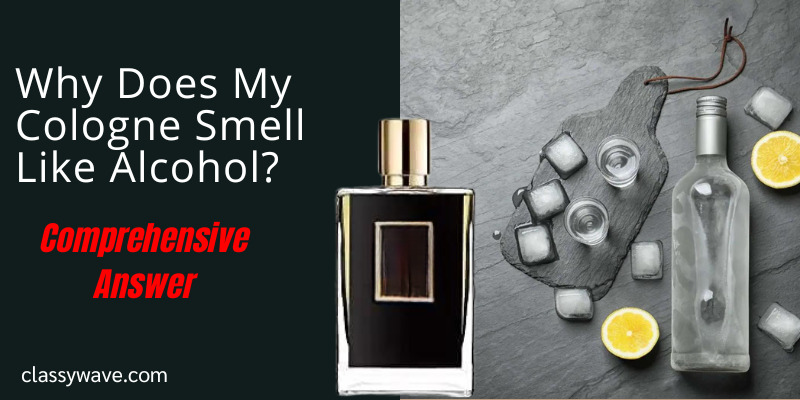Why Does My Cologne Smell Like Alcohol? – Comprehensive Answer
Have you ever experienced the confusion of spritzing on your favorite cologne only to be hit with a strong whiff of alcohol? It can be baffling, especially if you’ve invested in a high-quality fragrance. Understanding the reasons behind this occurrence requires delving into the intricate chemistry of colognes.
Understanding Cologne Composition
Colognes are complex mixtures of various aromatic compounds, solvents, and fixatives carefully blended to produce a distinctive scent. These formulations typically contain a considerable amount of alcohol, which serves as a solvent to help dissolve and disperse the fragrance oils evenly.
Alcohol Content in Cologne
The presence of alcohol in cologne is vital for its performance. Ethanol or isopropyl alcohol is commonly used as a base due to its ability to evaporate quickly, allowing the fragrance to disperse into the air upon application. However, this high alcohol concentration can sometimes lead to an overpowering alcohol scent during initial application.
Chemical Reactions
The interaction between the alcohol and the essential oils in the cologne can result in temporary alterations to the fragrance profile. When exposed to the air, alcohol can react with the top notes of the fragrance, potentially intensifying the alcohol smell at the first spritz.
Evaporation Process
The evaporation process plays a crucial role in how the cologne unfolds on your skin. The rapid evaporation of alcohol can lead to the immediate release of volatile compounds, causing the initial burst of alcohol aroma. However, as the alcohol evaporates, the true essence of the fragrance gradually emerges.
Factors Affecting Scent
Several factors can influence how the alcohol in your cologne manifests on your skin. Skin type, pH levels, and even environmental conditions can impact the way the fragrance interacts with your body chemistry, leading to variations in the intensity of the alcohol scent.
Quality of Ingredients
The quality of ingredients used in the cologne formulation greatly influences the overall olfactory experience. High-quality natural extracts and essential oils can blend seamlessly with the alcohol base, minimizing the prominence of the alcohol scent and enhancing the longevity of the fragrance.
Shelf Life of Cologne
Understanding the shelf life of your cologne is essential in comprehending changes in its scent profile. Over time, exposure to light, heat, and air can cause the alcohol to degrade, altering the composition of the fragrance and potentially leading to a more pronounced alcohol odor.
How to Choose Quality Cologne
Selecting a quality cologne involves considering various factors, including the concentration of essential oils, the reputation of the brand, and the reviews of other users. Opting for reputable fragrance houses known for their high-quality ingredients can significantly reduce the likelihood of encountering overpowering alcohol scents.
Importance of Storage
Proper storage is crucial in preserving the integrity of your cologne. Storing your fragrance in a cool, dark place and away from direct sunlight can help maintain its composition, preventing the alcohol from degrading and dominating the fragrance notes.
Common Misconceptions
It’s imperative to address common misconceptions surrounding the presence of alcohol in colognes. While the initial alcohol scent might be overwhelming, it’s crucial to allow the fragrance to settle on your skin and develop its full aromatic potential before making a judgment about the overall scent experience.
DIY Solutions for Alcohol Smell
For those experiencing persistent issues with the alcohol scent in their cologne, several DIY solutions can help mitigate this concern. These include mixing the cologne with unscented moisturizers or applying the fragrance to clothing rather than directly to the skin.
Seeking Professional Help
If the issue persists despite your efforts, consulting a fragrance expert or perfumer can provide valuable insights into the specific chemistry of your chosen cologne. They can offer tailored recommendations to enhance your fragrance experience.
Additional Tips and Recommendations
- Experiment with applying the cologne to different pulse points to find the optimal distribution of the fragrance.
- Consider layering your cologne with complementary scented products, such as body washes or lotions, to create a more nuanced olfactory experience.
- Avoid purchasing counterfeit or expired colognes, as these may contain higher levels of alcohol, resulting in a more pronounced alcohol scent.
Conclusion
Understanding why your cologne might initially smell like alcohol involves considering various factors, including the composition, chemical reactions, and storage conditions. By being mindful of these aspects and implementing the suggested solutions, you can enhance your overall fragrance experience and enjoy the true essence of your chosen cologne.
FAQs
Why does alcohol seem to overpower the fragrance when I first apply my cologne?
This initial burst of alcohol scent is primarily due to the rapid evaporation of the alcohol, which allows the fragrance to disperse into the air.
Can the alcohol smell in cologne change over time?
Yes, prolonged exposure to unfavorable storage conditions can cause the alcohol to degrade, potentially altering the overall scent profile of the cologne.
Are there specific skin types more prone to experiencing a strong alcohol scent in cologne? Individuals with drier skin types might find that the alcohol in cologne evaporates more slowly, leading to a more noticeable initial alcohol scent.
How can I make my cologne last longer without the overpowering alcohol smell?
Proper application techniques, such as moisturizing the skin before applying cologne, can help the fragrance last longer and minimize the intensity of the alcohol scent.
Is it advisable to store my cologne in the bathroom?
No, storing your cologne in the bathroom can expose it to fluctuating temperatures and humidity, potentially degrading the fragrance and intensifying the alcohol scent.


